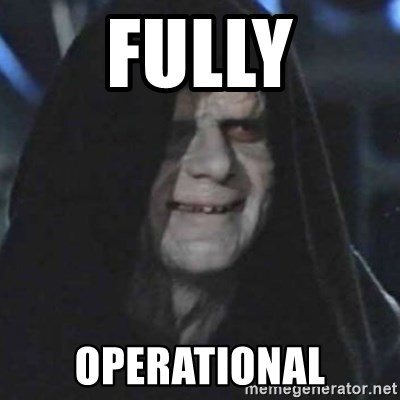- Joined
- Mar 29, 2016
- Messages
- 618
- Reaction score
- 944
Get it...Fully operational? Ok I'll stop now.
Seriously though. Let's say you're a "healthcare leader" who has just stumbled upon an innovative, cutting edge idea that's never been implemented before*: cutting costs to raise profits by leveraging mid-level providers in place of higher paid physicians. If you had your eyes set on the surgical fields, you'd obviously want to start with those specialties that already heavily utilize midlevels in the OR as first assists, since it's easier to take someone who already has x/100 of a given skillset and top them off than to train people from scratch.
My question is which specialties not only make extensive use of midlevels in the OR, but also use them for relatively "value added" stuff and not just retracting and closing. And in contrast, which specialties make relatively little use of them? My uneducated guess would be that anything with large, open operative fields where big structures are moved around during surgeries would give midlevel first assists the most opportunities to learn the tricks of the trade. On the other hand, small fine surgeries and especially laparoscopic stuff is probably relatively midlevel free.
So, basically:
Ortho and general surg are most susceptible?
Urology and ENT are least susceptible?
Am I close here or completely off the mark?
*sarcasm, obviously.
Seriously though. Let's say you're a "healthcare leader" who has just stumbled upon an innovative, cutting edge idea that's never been implemented before*: cutting costs to raise profits by leveraging mid-level providers in place of higher paid physicians. If you had your eyes set on the surgical fields, you'd obviously want to start with those specialties that already heavily utilize midlevels in the OR as first assists, since it's easier to take someone who already has x/100 of a given skillset and top them off than to train people from scratch.
My question is which specialties not only make extensive use of midlevels in the OR, but also use them for relatively "value added" stuff and not just retracting and closing. And in contrast, which specialties make relatively little use of them? My uneducated guess would be that anything with large, open operative fields where big structures are moved around during surgeries would give midlevel first assists the most opportunities to learn the tricks of the trade. On the other hand, small fine surgeries and especially laparoscopic stuff is probably relatively midlevel free.
So, basically:
Ortho and general surg are most susceptible?
Urology and ENT are least susceptible?
Am I close here or completely off the mark?
*sarcasm, obviously.


